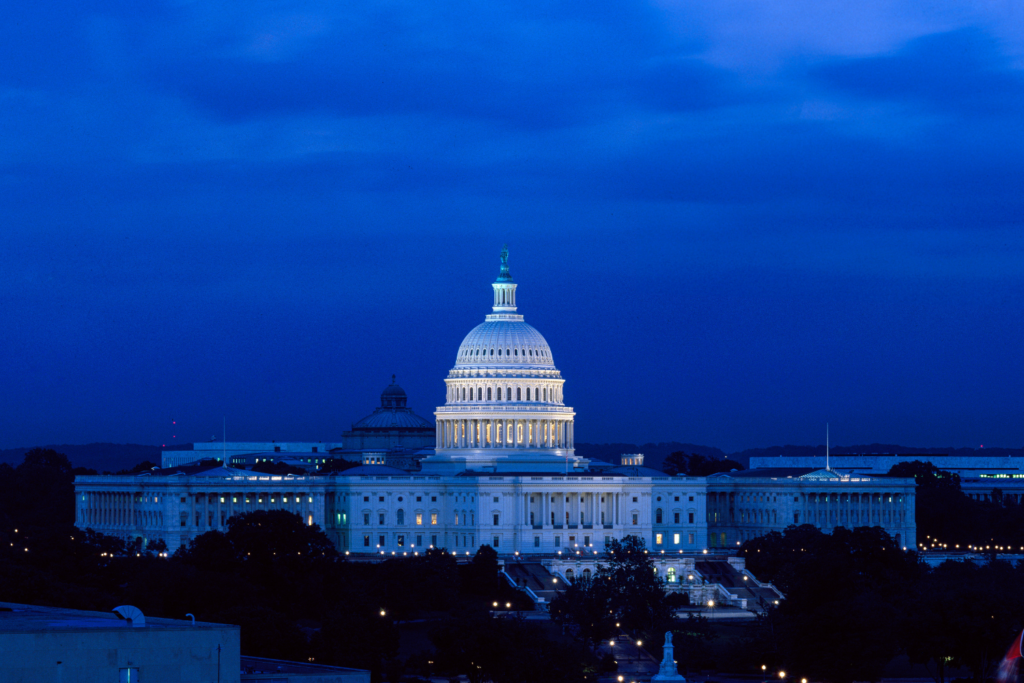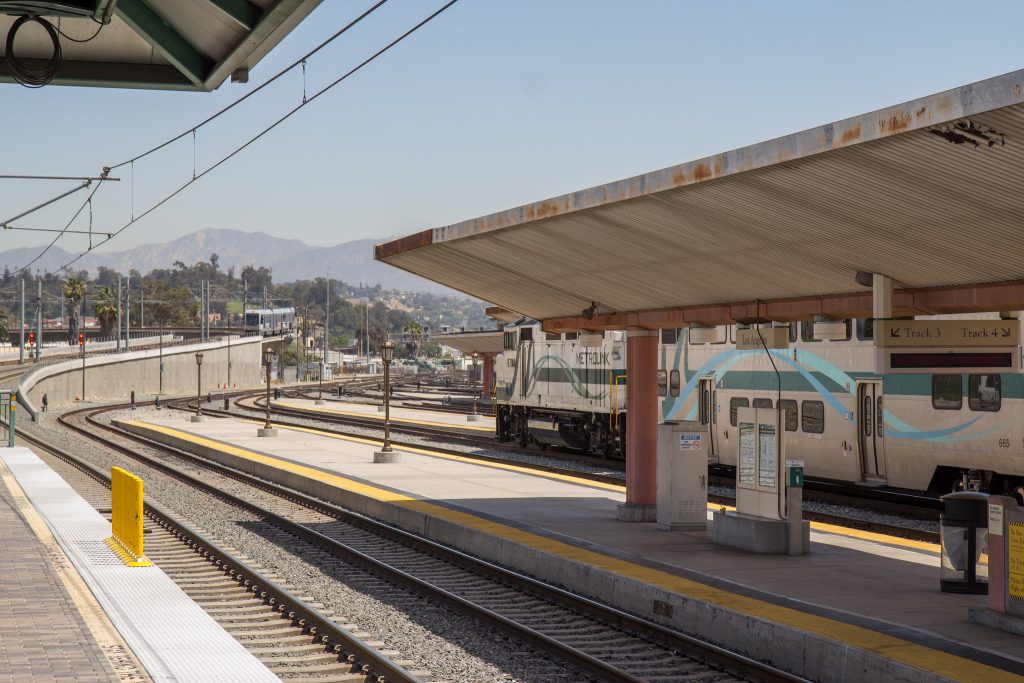
House oversight hearing on transit grants left unanswered questions

The House Transportation and Infrastructure Committee held an oversight hearing on Tuesday, July 16, to question the Federal Transit Administration (FTA) about its ongoing failure to release billions of congressionally-appropriated funds for local transit construction projects in a timely fashion. We still have questions.

A platform at Los Angeles’ Union Station, with a subway train arriving in the distance. LA Metro’s Purple Line has been waiting for allocated funding from the FTA since November 2018.
While Acting FTA Administrator K. Jane Williams provided some answers to the numerous good questions from members of Congress about the impacts of FTA’s slow-walking of construction grant agreements, we came away from the hearing with more questions than answers about the FTA’s process.
What’s causing the delays?
In our last blog post on the hearing, we noted that Williams was asked very directly about delays for transit projects. She gave a carefully-worded answer, stating “there is not one single project waiting for my action as I sit here today.”
It may be true that there’s nothing sitting on her desk at this moment. But projects are certainly being held up at various stages in the pipeline; local communities, Congress, and the public just don’t know why. While projects sponsors have to turn in paperwork correctly and on time, it’s literally FTA’s job to do everything they can to help projects progress efficiently through the pipeline. If there are significant delays, it’s unlikely that it’s resulting from every single project sponsor failing to turn in their homework. At some point the spotlight has to shine on FTA’s role with the delays.
There are many ways that the FTA could be slowing down a project that prevents it from even getting to the point where it would be waiting for the Acting Administrator’s signature. That’s really just the last step before it goes to the Secretary for approval.1 In addition, local communities have told us about poor or non-existent communication, unexplained delays, and bizarre requests for information from the FTA, all of which could be slowing projects down.
The FTA has also changed a small but significant rule in the middle of the game, upending historical precedent that quite logically allowed local funds used to repay federal loans to count toward the local contribution to the project. That makes sense: For the handful of transit projects partially financed by a federal loan from another program, the federal government gets repaid and the local dollars are the ones actually spent. Now communities will have to scramble to come up with more cash to pay back federal loans and also fulfill their local matches.
How long should a project have to wait after FTA’s “allocation” announcements to sign a grant agreement?
Both the Dallas Area Rapid Transit (DART) Red and Blue Line Platform Extensions and the Minneapolis Orange Line BRT received an allocation for their project back in November 2018. But as we’ve repeatedly pointed out, these misleading allocation announcements do not mean that these communities received funds for their projects or signed a grant agreement.
In the hearing, Acting Administrator Williams claimed that an allocation was their way of signaling that the project would receive a grant. But how long should communities be expected to wait after an allocation? Dallas and Minneapolis eventually received their grants this summer, three quarters of a year after the allocation. The money was just sitting there for them, waiting to be given out. The Tempe Streetcar project in Arizona and the LA Westside Purple Line also received allocations in November 2018, but still haven’t received their grant agreements. There should be a deadline for the FTA to sign a grant agreement after an allocation, as well as clear communication about what to expect, so communities can plan for when they’ll receive their money.
And what about that $500 million for new projects?
This administration made their feelings about funding transit known when they tried to eliminate the program outright in consecutive years by requesting $0 for new projects and suggested that transit was only a local concern. In his most recent budget request, President Trump requested just $500 million for new projects. Asked to justify this seemingly arbitrary figure at the hearing, Acting Administrator Williams responded by explaining that the FTA only expected $500 million-worth of projects would be ready for funding.
The FTA controls when projects will be ready. If the FTA is only expecting $500 million worth of new projects, then FTA is just failing to do its job.
Just $500 million? Seems like a strangely round number. In reality, there are dozens of projects in the pipeline waiting for funding that, collectively, are seeking a lot more than $500 million. As we explained above, the FTA has an immense amount of control over when projects will be ready, and if the FTA is only expecting $500 million worth of new projects, then FTA is just failing to do its job.
The FTA certainly has some idea of which projects will be ready for a grant agreement and when, but they are failing to publicize this information. The FTA has broken with precedent and no longer provides Congress and the public with annual reports clearly detailing which new projects will receive funding that year and when. This makes it impossible for communities, the public, or their representatives in Congress to know where their projects stand and makes it nearly impossible to hold FTA accountable for keeping to their timeline.
The hearing underscored the fact that this administration at FTA needs to be far more transparent about this lone federal program dedicated to building new transit systems and expanding/improving existing ones. FTA should do so without having to be called before Congress to answer questions that they should be answering via clear public reports, easily accessible information on their website about each project, and detailed reports to Congress about where projects are in the process on the way to being approved and getting underway.



